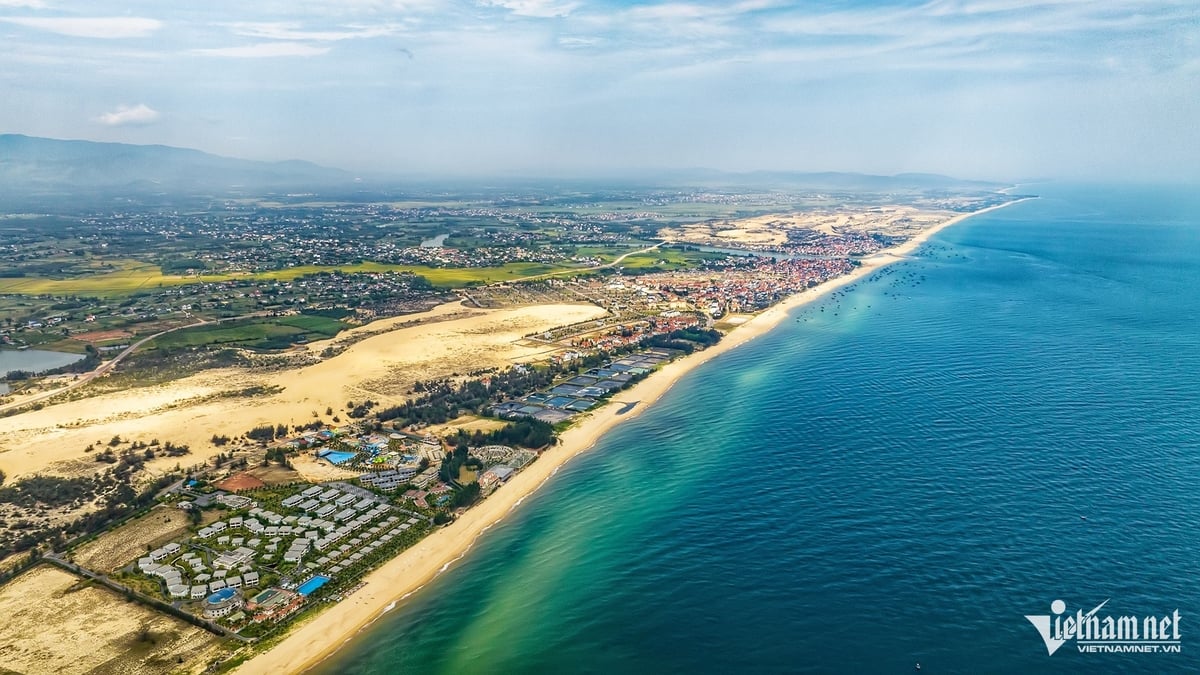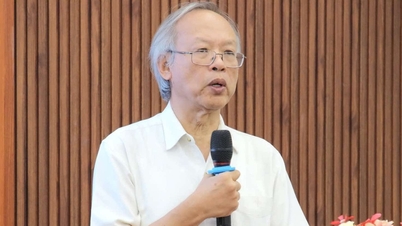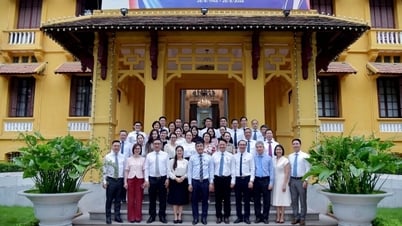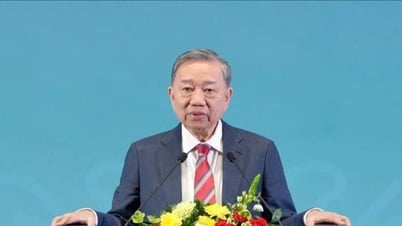Indonesia is hoping to become a regional asset management hub, ready to compete with the two regional giants Singapore and Hong Kong (China).
Indonesia's popular resort paradise, Bali, has the potential to attract the region's super-rich looking for trusted financial institutions to manage their vast fortunes, Coordinating Minister for Maritime Affairs and Investment Luhut Pandjaitan said earlier this month.
“A lot of rich people will see Bali as an alternative place for them to invest in Indonesia,” Minister Luhut Pandjaitan said during a meeting of the House of Representatives.
According to Mr. Luhut Pandjaitan, if Singapore, Abu Dhabi and Hong Kong (China) can rise to become financial centers of Asia, Indonesia can completely achieve this goal.
 |
| Indonesia is looking to compete with Hong Kong (China) and Singapore to become a regional asset management center. (Source: Bloomberg) |
Great potential
Accordingly, the most populous country in Southeast Asia could witness a financial flow of up to 100 million USD to 1 billion USD from family offices - a term used to refer to private asset management consulting firms that serve ultra-high net worth individuals (HNWI) in families and family businesses, to support the development and transfer of assets across multiple generations effectively.
Mr. Luhut Pandjaitan revealed that he had received the "green light" from outgoing President Joko Widodo and was ready for this plan.
The high proportion of family-owned businesses in Indonesia is creating significant demand for family office services, which will allow many wealthy families to preserve their assets in Indonesia instead of having to move money abroad, according to the head of the Coordinating Ministry for Maritime Affairs and Investment.
A family office offers a range of services tailored to the needs of high-net-worth individuals. From investment management to philanthropic advice, family offices provide a comprehensive financial solution for high-net-worth individuals. In addition, family offices can also handle non-financial matters such as private schooling, travel arrangements, and other family arrangements.
Deloitte Indonesia's report shows that an estimated 95% of businesses in Indonesia are family-owned.
Fierce competition
According to a 2023 report by consulting firm KPMG, 9% of the world's 20,000 family offices are located in Asia, which is also the continent with the highest number of billionaires in the world.
As financial hubs, Singapore and Hong Kong have been competing fiercely in recent years to attract wealthy investors, mainly from China. According to the Monetary Authority of Singapore, the number of family offices has increased from 50 in 2018 to 1,400 by the end of 2023, bringing billions of dollars in private wealth to the city-state. Meanwhile, a report from Deloitte in March estimated that there were more than 2,700 family offices operating in Hong Kong.
Analysts say Indonesia will face stiff competition from both Singapore and Hong Kong, especially as the two financial hubs have built strong reputations in the asset management sector over the past few decades.
“For Indonesia to compete with Singapore or Hong Kong in the asset management sector, it needs to build confidence in the overall system, especially in governance and institutional capacity to protect investors and consumers,” commented Dr. Siwage Dharma Negara, senior fellow at the ISEAS-Yusof Ishak Institute and coordinator of the Indonesia Research Program.
He also warned that Indonesia's institutional capacity and governance issues could deter future investors, noting that a cyberattack on one of Indonesia's key data centers last week crippled the country's immigration system and raised privacy concerns.
Singapore and Hong Kong also benefit from stable political systems, strong legal frameworks, sophisticated financial infrastructure and common rule of law, said Maisya Sabhira, business and investment advisor at Jakarta-based tax consultancy Tax Prime.
“While Indonesia has potential due to its market size and economic growth, it is currently facing challenges in regulatory clarity, legal system complexity, infrastructure gaps, and perceptions of governance and transparency,” Maisya Sabhira said.
Jakarta's efforts
To prepare for this ambition, Indonesia is amending its legal system to allow the establishment of family offices, as Jakarta’s current civil law framework lacks the necessary legal basis, especially for international arbitration requirements. Experts also note that the plan will require significant institutional and legal changes.
“Jakarta’s ability to make this move will depend on political will, support from stakeholders, and the benefits received versus the complexity of implementation,” said Gatot Soepriyanto, a professor at Binus University in Bekasi, Indonesia.
However, Mr Gatot argues that Indonesia's large economy and strategic location will give it a competitive advantage if it can overcome legal challenges and offer tax incentives to attract the rich.
“Indonesia can leverage Bali’s unique cultural and natural attractions to offer a differentiated proposition compared to other financial hubs,” he added.
Still, Negara said there needs to be “further consideration and discussion” with stakeholders about whether Bali has the financial infrastructure to support these new offices, especially compared to Jakarta, where most of the country’s financial activities are concentrated.
Ultimately, to assert its role and position in the asset management sector, Indonesia must build a solid reputation within its financial and legal framework.
“This will take a long time to develop because Indonesia is still facing various issues related to its legal framework,” the expert said.
Source: https://baoquocte.vn/tham-vong-tro-thanh-trung-tam-quan-ly-tai-san-moi-cua-khu-vuoc-mot-quoc-gia-dong-nam-a-quyet-vuot-singapore-va-hong-kong-trung-quoc-276828.html






![[Photo] Prime Minister Pham Minh Chinh chairs Government Standing Committee meeting on Gia Binh airport project](https://vphoto.vietnam.vn/thumb/1200x675/vietnam/resource/IMAGE/2025/5/10/6d3bef55258d417b9bca53fbefd4aeee)




























































































Comment (0)